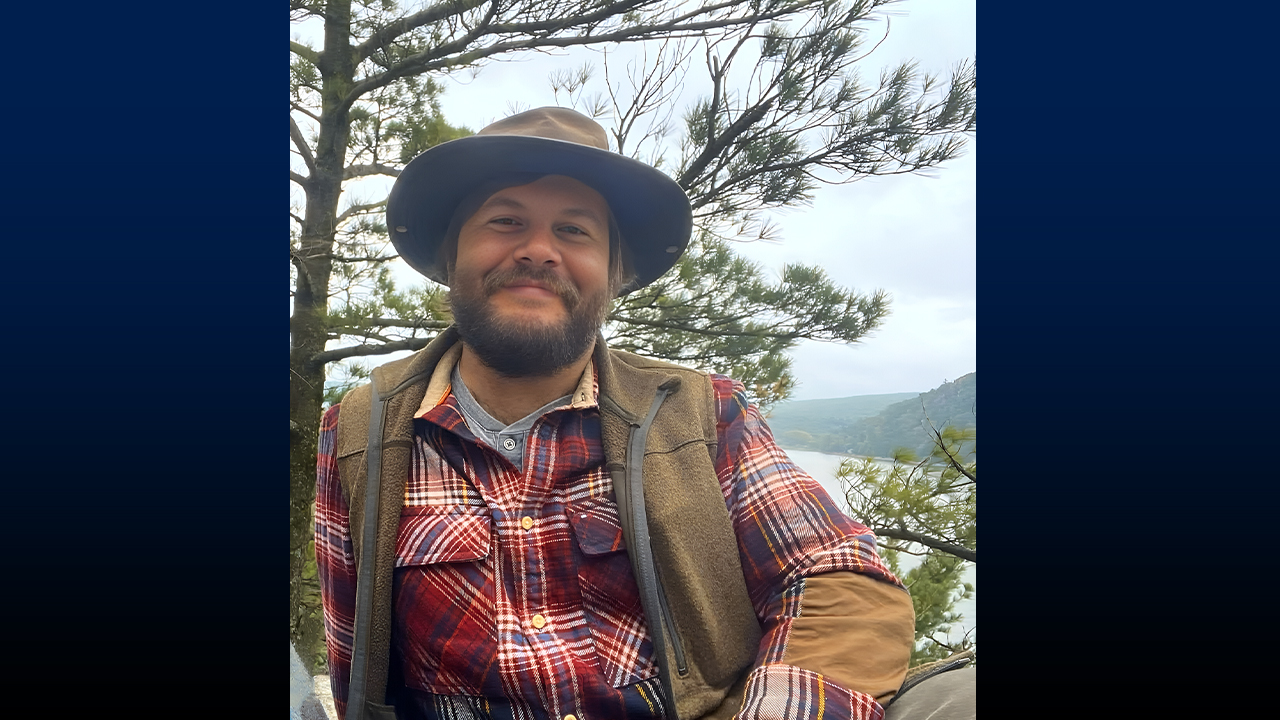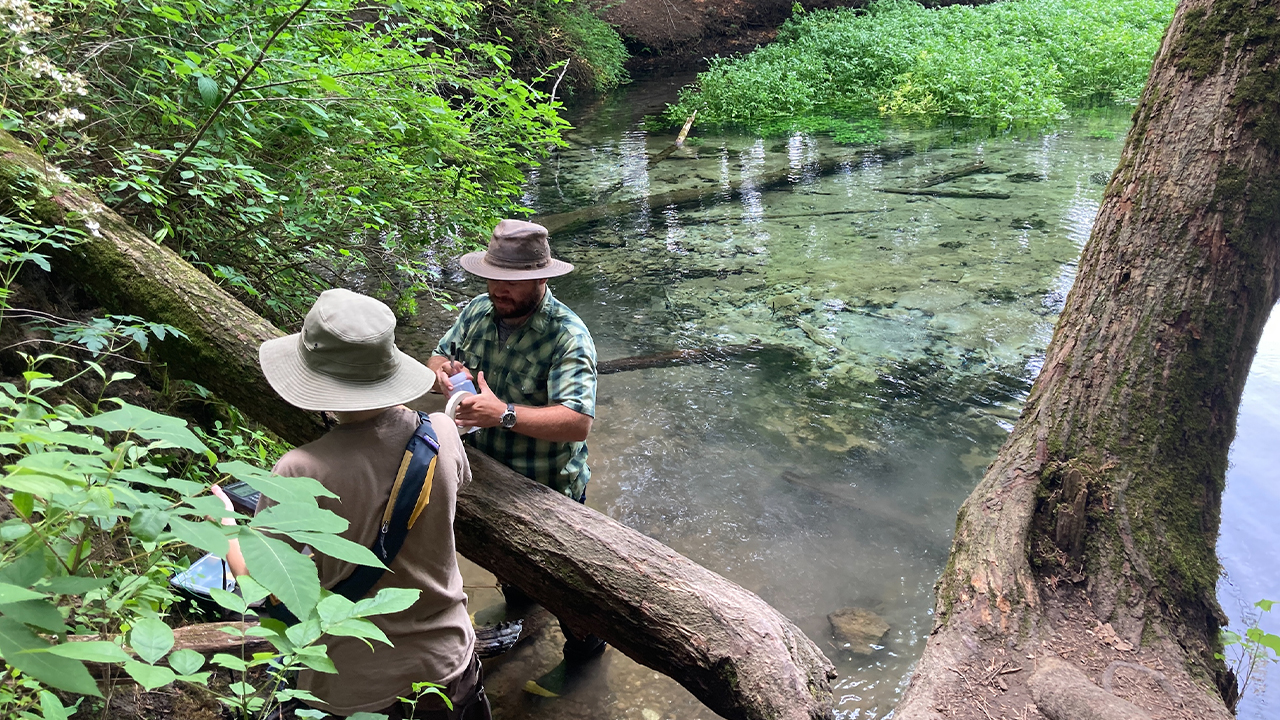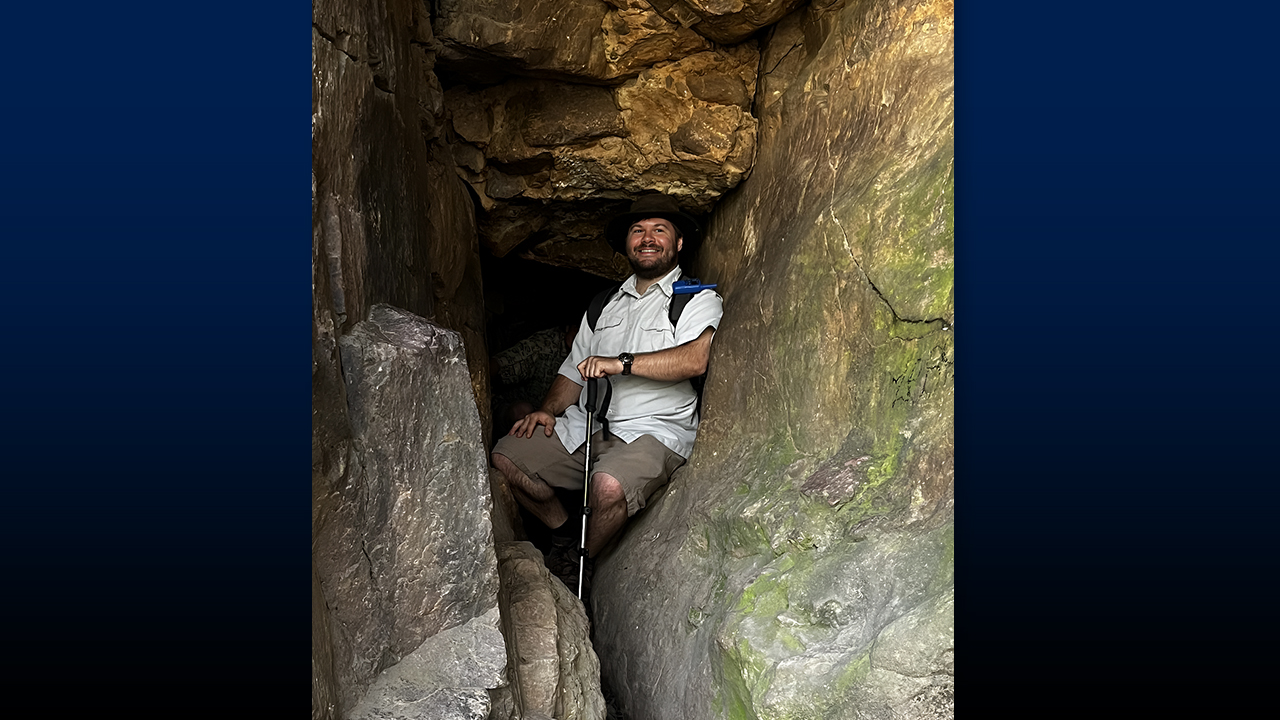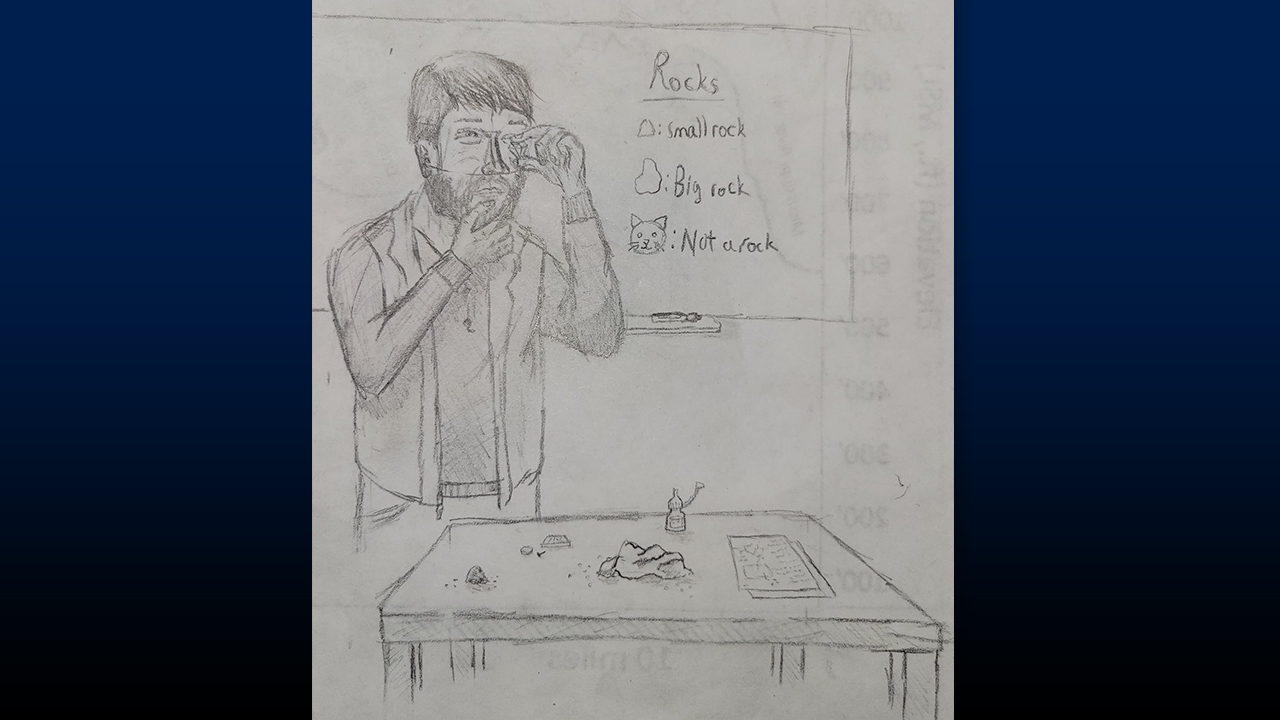



Each year at Convocation, the University of Wisconsin-Platteville recognizes recipients of UW-Platteville and Universities of Wisconsin awards, highlighting the excellence and dedication within the university community. These awards honor faculty and staff who have made exceptional contributions through teaching, service, leadership and engagement. This year, we’re shifting focus—instead of just highlighting their achievements and what they do for the university, we’ll be sharing the personal stories behind the people who make such a difference.
UW-Platteville has awarded Dr. James Berglund, assistant professor of geology, with the Early Career Faculty Award for Teaching Excellence. The award recognizes a tenure-track faculty member who has made distinguished contributions to the mission of the university as an outstanding teacher.
Q: What is your official title and what do you do within the Department of Civil and Environmental Engineering?
I’m an assistant professor of geology. I teach courses in geology and groundwater, including Physical Geology, Geology for Engineers, Historical Geology, Hydrogeology and Groundwater Hydrology. My research focuses on groundwater in karst regions, such as springs in Southwest Wisconsin. I also coordinate the geology courses offered at the Baraboo Sauk County campus and currently serve as secretary/treasurer for the North-Central Section of the Geological Society of America.
Q: How long have you held this role?
I started at UW-Platteville in the summer of 2022, so it’s been just under three years. Before that, I was a research hydrogeologist for the Montana Bureau of Mines and Geology in Butte, Montana.
Q: What first attracted you to this job?
A few things. I grew up in central Minnesota and went to Winona State University, where I fell in love with the unique landscapes of the Driftless Area and the Mississippi River Valley. That’s what first inspired me to study geology. While I appreciated the chance to move around the country for grad school and work, I was excited for the opportunity to return to the area where my passion for geology began. I also had a great experience as an undergraduate at a teaching-focused university, which is exactly the kind of institution I wanted to teach at as a professor. It was just a great combination, and I couldn’t pass up the opportunity.
Q: What do you think made you stand out in terms of receiving this honor?
Good question! Maybe all the bad rock puns? On a more serious note, I genuinely love being a geologist and getting to teach topics that help people see the world in a new way. It’s incredibly rewarding to see students develop an interest in something as seemingly mundane as a rock. But they pick up a chunk of limestone or granite they find on the ground and give a name and story to something that would have otherwise had no meaning to them before. That shift in perspective is powerful. My office is slowly filling up with interesting rocks that former students bring me from their travels after taking my classes, and it's awesome. As a student, my favorite teachers and professors had a natural enthusiasm for their subjects that made it easier to learn and stay engaged, and I like to think I bring that same energy to my own classroom. Hopefully, my students feel the same way.
Q: What is something people may not know about you?
Something people may not know is that my first few years of college were pretty rough. I switched majors several times, tried a lot of different things and failed more than a few classes, including engineering. I was even placed on academic suspension at one point. But with persistence and some much-needed compassion and understanding, I was able to return to school, discover geology and finally find the right path. Everything started to fall into place from there. I still remember that struggle, and I try to keep it in mind when working with students. Education can be a bumpy road, but some of the best destinations are at the end of bumpy roads. Although maybe that’s just something geologists say!
Q: Where were you born and raised?
I grew up in Mound, Minnesota, a small suburb on the western edge of the Twin Cities. It’s lake country—and mosquito country too.
Q: Did your upbringing or family encourage you to take the route of geology or science?
Yes. I was the one of my siblings that was certainly more interested in science, collecting insects and getting telescopes as gifts as a kid. Although my parents didn’t go to college, they were still supportive of my scientific interests. I also had some great science teachers throughout grade school who were supportive and encouraging of my interest in pursuing science as a career, although I didn’t discover geology until college. I still enjoy bugs and astronomy—although now primarily in the form of trilobites and Moon rocks.
Q: What is one project you would love to tackle?
I would love to be part of a large-scale effort to study the health and behavior of springs throughout the Driftless Area. My Ph.D. research and my work as a research hydrogeologist in Montana focused on groundwater modeling, so I’m especially interested in projects involving complex groundwater flow—particularly in karst regions with limestone, caves, sinkholes, and springs.
Q: What is something you enjoy doing when you are not at UW-Platteville?
Flying! I have my private pilot’s license, and a drone pilot license, so I love getting the chance to fly whenever I can. The Mississippi River Valley is beautiful from the air.
Berglund will be recognized this fall at the university’s annual faculty and staff convocation.